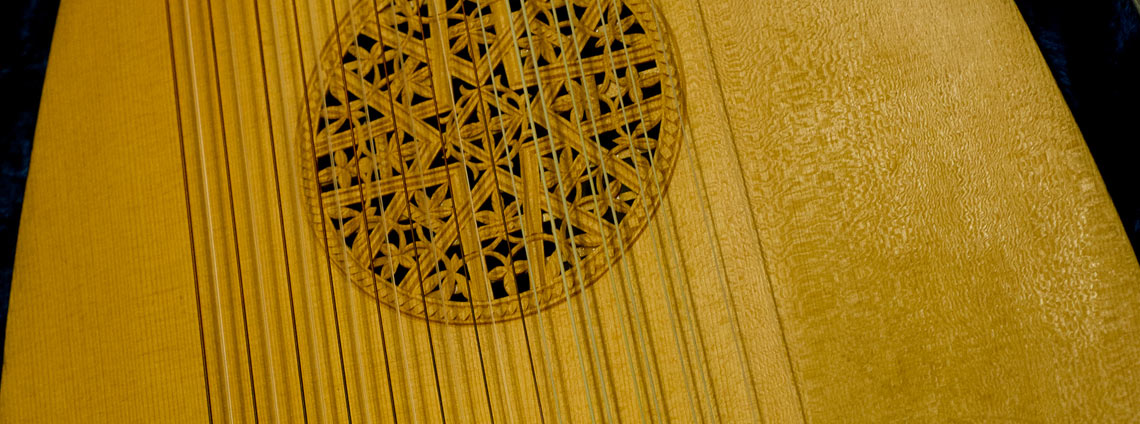Roy Barnett Recital Hall | Map
Ronn McFarlane, lutenist
“His intense concentration, technical prowess and rapport with the audience showed that, in time, he could become the Segovia of the lute.” – Chicago Tribune
Chromatic Galliard
Philip’s Dump Philip van Wilder (c. 1500-1554)
Forlorn Hope John Dowland (1563-1626)
Pavana Bray William Byrd (1542-1623)
Galliard
A Fancy #5 John Dowland
Piper’s Galliard
Lady Clifton’s Spirit
A Fancy #73
Daniel’s Chaconne Ronn McFarlane (1953)
Philip’s Dump, based on only two chords (C and G) toggling back and forth, is stunning in its variety and range using only the simplest of music materials. One might think of a lutenist casually noodling between a pair of chords, yet the carefully paced structure belies the impression that we’re hearing a spontaneous improvisation. I enjoy hearing the different approaches and tempos that various lute players have taken for Phillip’s Dump. But whatever the tempo, I find that the hypnotic “groove” of the piece always gets under my skin with each listening.
Daniel’s Chaconne (aka. Passacaglia) was written for and inspired by Daniel Shoskes who recorded the piece on his CD Patrons of the Lute. Dr. Shoskes writes: “When planning a CD entitled Patrons of the Lute – dedicated to composers who had day jobs (doctors, nobility) and who supported the professionals of the day – I thought it fitting to close the loop and end the recording with a new work that I commissioned from a modern composer/performer.”
Ronn McFarlane

Ronn McFarlane, lutenist
Grammy-nominated lutenist, Ronn McFarlane strives to bring the lute into the musical mainstream and make it accessible to a wider audience. Born in West Virginia, Ronn spent his early years in Maryland. At thirteen, upon hearing “Wipeout” by the Surfaris, he fell wildly in love with music and taught himself to play on a “cranky sixteen-dollar steel-string guitar.” Ronn kept at it, playing blues and rock music on the electric guitar while studying classical guitar.
He graduated with honors from Shenandoah Conservatory and continued guitar studies at Peabody Conservatory before turning his full attention and energy to the lute in 1978. The following year, Mr. McFarlane began to perform solo recitals on the lute and became a member of the Baltimore Consort. Since then, he has toured throughout the United States, Canada and Europe with the Baltimore Consort and as a soloist.
McFarlane was a faculty member of the Peabody Conservatory from 1984 to 1995, teaching lute and lute-related subjects. In 1996, Mr. McFarlane was awarded an honorary Doctorate of Music from Shenandoah Conservatory for his achievements in bringing the lute and its music to the world. He has over 25 recordings on the Dorian label, including solo albums, lute songs, recordings with the Baltimore Consort, and Blame Not My Lute, a collection of Elizabethan lute music and poetry, with spoken word by Robert Aubry Davis.
Recently, Ronn has been engaged in composing new music for the lute, building on the tradition of the lutenist/composers of past centuries. His original compositions are the focus of his solo CD, Indigo Road, which received a Grammy Award Nomination for Best Classical Crossover Album in 2009. His newest CD release, One Morning, features “Ayreheart,” a new ensemble brought together to perform Ronn’s new music.


